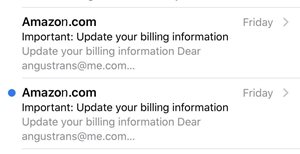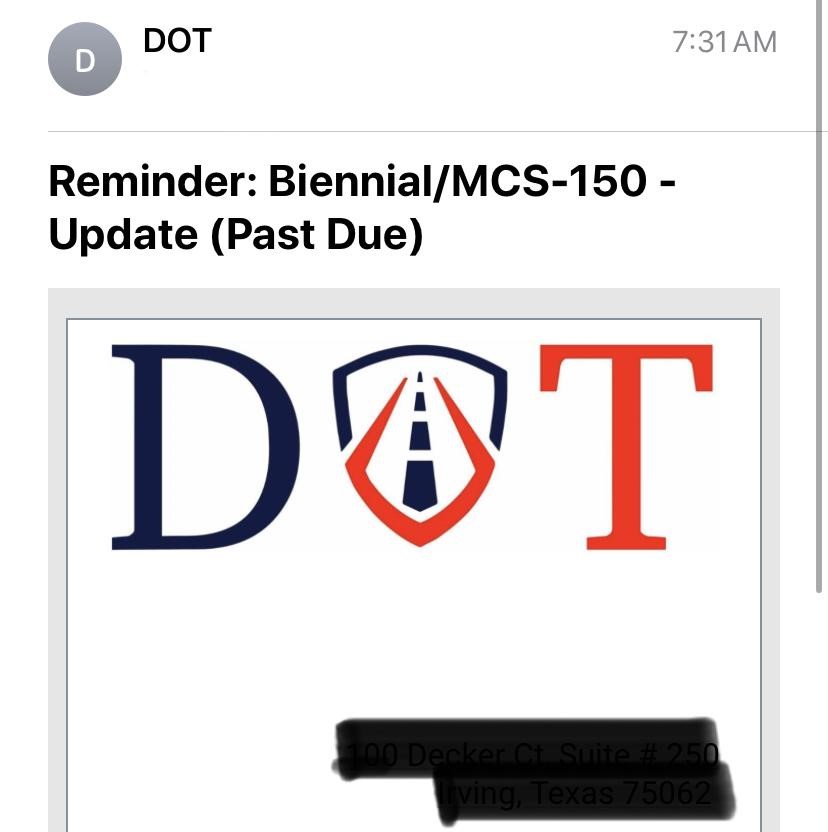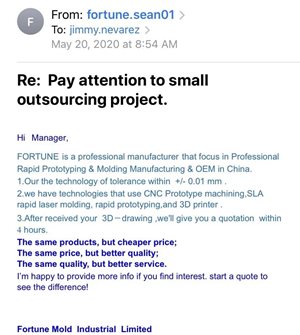
No matter what time of year it is, it always seems as though I am able to find some type of deceptive phishing email in my recent inbox items. For an independent or a fleet owner though, there are certain times of the year you will find these tactics employed in higher quantity. Made to seem like they are from completely legitimate sources, the deceptive tactics often used can be spotted if you know what to look for. Here are just a few things that might help you spot a scam and keep you from falling victim to some of these predatory scammers.
The “Account Info Update” Hack

As you can see from the snapshot above, where it came through my inbox, my email automatically recognized this as “Amazon.com." Lending itself to its possible legitimacy is that I do have an Amazon account. There are, however, three things that tipped me off this though. For starters, you can see the “n” at the end of Amazon is a bit questionable, being a different font than the rest of the word. Then, once I clicked on the sender's address in the email, I found it came from a generic domain instead of an actual Amazon domain ending in “@amazon.com." The final tip-off was actually that our Amazon account is not registered to this email address, but another one I happen to have instead.
The “Trying to Look Official” Notice

This one pictured above happened to appear this year after my biennial MCS-150 update deadline had passed, but had they done a SAFER check, they’d have seen it was already filed a month prior on my own! If someone were not paying as close attention to its legitimacy, this could come over in their email inbox and be mistaken for something from the actual U.S. DOT, as even the address pops up in the “from” area as "DOT."
The Overseas Industrialist, Venture Capitalist, or Investor.

Whether they are offering to produce something for you for cheap, invest in your project, or partner an overseas business branch with your US-based operation, you can usually pick these ones off with a general glance. Besides, oftentimes having grammatical errors and choppy language, we can usually see them coming from non-official domains in the address bar. I happen to be a firm believer that if my business was successful enough to catch the eyes of someone overseas who did their research into it, they would most likely want to meet me in person and fly here to do it. Most of these emails will have nothing to do with your type of business operation either, as they are just sent out to the masses, as witnessed here by a “rapid prototype and molding” company sending their offer to my simple little trucking company. With no need to prototype anything in the near future, I think I’m safe to pass on this “seemingly lucrative” opportunity.
Always be on the lookout for these types of things and others, so that you do not become a victim of someone else’s attempt to do you harm! I always try to adhere to the old rule “If it seems to good to be true, most likely it is!” When all else fails, and something does look legitimate enough that you want to follow up on it, be sure just to take a moment and do a quick Google search on them as a final precaution, further helping guard you against predators. Even if they are legitimate, this will often help you see reviews from other people that might have encountered bad dealings in the past. Be aware, keep a watchful eye out, and guard yourself and your business from the predators that do indeed lurk out there!